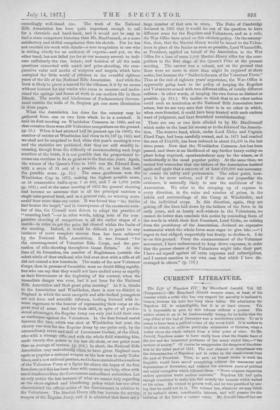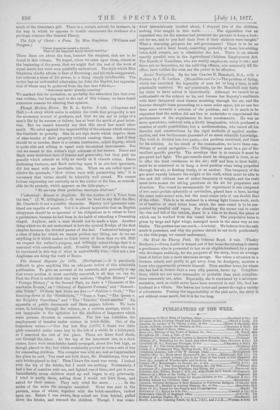CURRENT LITERATURE.
The We of Napoleon Ill. By Blanchard Jerrold. Vol. III. (Longmans.)—Mr. Blanchard Jerrold escapes some, at least, of the censure which a critic e'rho has any respect for morality is inclined to bestow, because his hero has long since fallen. IIis admiration for
Napoleon HI. is unintelligible, but it is at least sincere. Yet it is impossible to pass by this volume without a protest. The
author seems to us to be fundamentally wrong, for he holds that the coup d'etat of the 2nd of December was a meritorious action. To us it ROOMS to have boon a poLiteal crime of the worst kind. St is useless to dwell on details, to criticise particular stateruents or theories, when a writer views the whole subject from a false point of view. To Mr. Jerrold, Napoleon seems to have really been what the frantic fears of the few and the interested pretences of the many styled him,—" the saviour of society." Of course he exaggerates the dangers of the situa- tion in the latter part of 1851. The real element of disturbanoe was the determination of Napoleon not to retire in the usual course from the post of President. Then, as now, on honest desire to work the Republic would have saved everything, without the massacres and deportations of December, and without the nineteen years of political and social corruption which followed them. " Nemo unquam imperium seder° qutesitum bonis artibus exerauit." Napoleon III, had quite enough conscience to make him feel acutely the nemesis which waited on his crime: He wished to govern well, and he was punished by see- ing that he could not do it. The volume has, whatever we may think of its author's views, considerable interest, and will possess for the historian of the future a certain value. Mr. Jerrold himself has not much of the historian's gift. There is a certain naivetcf, for instance, in the way in which he opposes to hostile statements the evidence of a particeps criminis like General Fleury.



































 Previous page
Previous page